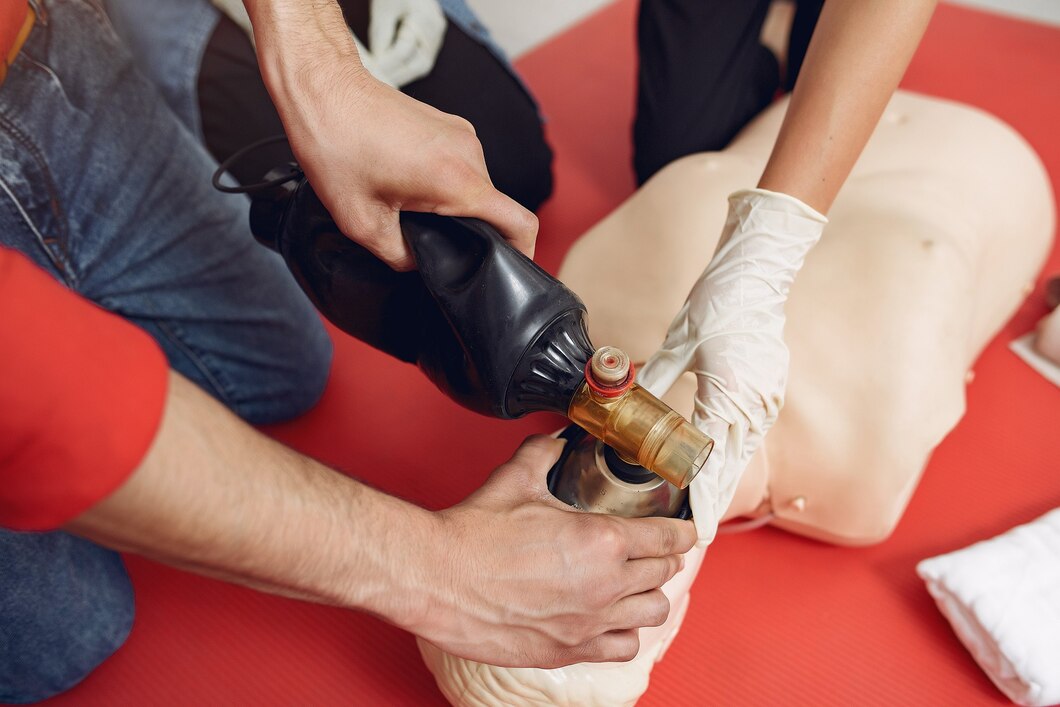In the realm of emergency response, the capability to perform advanced first aid can mean the difference between life and death. This vital set of skills goes beyond the basics, delving into complex procedures that can stabilise patients during critical moments. This article explores the indispensable techniques and knowledge one must possess to excel in advanced first aid management, ensuring that when emergencies strike, immediate and effective care is available.
Understanding Advanced First Aid
Advanced first aid is a level up from standard procedures. It encompasses a broader range of skills, including the management of spinal injuries, emergency child delivery, and administering essential medications. These advanced techniques are crucial, especially in remote areas where medical help may be hours away. The individuals who undertake HLTAID014 advanced first response certification are equipped with not just the know-how but also the confidence to handle severe medical emergencies.
Medical Emergencies and Immediate Response
One of the cornerstones of advanced first aid is understanding how to assess and respond to medical emergencies promptly. This includes identifying symptoms of severe conditions such as heart attacks, strokes, and severe allergic reactions. Immediate response actions might involve administering aspirin for a suspected heart attack or an EpiPen for anaphylaxis. These actions could provide the crucial minutes needed for professional medical help to arrive.
Trauma Management
Injuries from accidents or violent incidents present unique challenges. Advanced first aiders are trained in trauma management, which includes controlling severe bleeding, managing shock, and immobilising fractures. The use of tourniquets and haemostatic dressings are skills that can save lives in the event of major trauma.
Rescue Techniques
Another key component identified with HLTAID014 health programs is rescue techniques, which are often overlooked in basic first aid training. This includes safe extraction methods for patients in precarious situations, such as car accidents or collapsed buildings. These exercises are critical, as improper handling can exacerbate injuries and even lead to fatalities.
Preparedness and Equipment
Having the right equipment and knowing how to use it is another essential element via HLTAID014 initiatives. Advanced first aid kits are more comprehensive than the average home kit and include items like oxygen tanks, AEDs, and advanced airway management tools. Training provides the necessary skills to use these tools effectively, ensuring that first aiders can provide the best possible care in any situation.
Emergency Childbirth
While it’s a rare occurrence, advanced first aiders are also trained to assist in emergency childbirth. This could happen if a pregnant person goes into labour suddenly and unexpectedly, far from medical facilities. The training covers the basics of delivering a baby, including how to handle complications that may arise during childbirth.
In Conclusion
The capability to perform advanced first aid is an invaluable skill, thanks to HLTAID014 courses. Whether it’s a life-threatening situation or a less severe emergency, the knowledge and confidence gained from completing a course in advanced first aid management can have a profound impact.
By equipping yourself with these skills, you become an indispensable link in the chain of survival, providing critical assistance when it’s needed the most. Not only does this empower individuals to act in crises, but it also fosters a more resilient community as a whole. It’s a profound commitment to learn, but it’s one that can truly save lives.
For those interested in expanding their knowledge further, it’s beneficial to stay informed about the latest CPR techniques. These guidelines are frequently updated, reflecting ongoing research and innovations in medical practice, ensuring that even non-professionals can provide life-saving assistance effectively.
